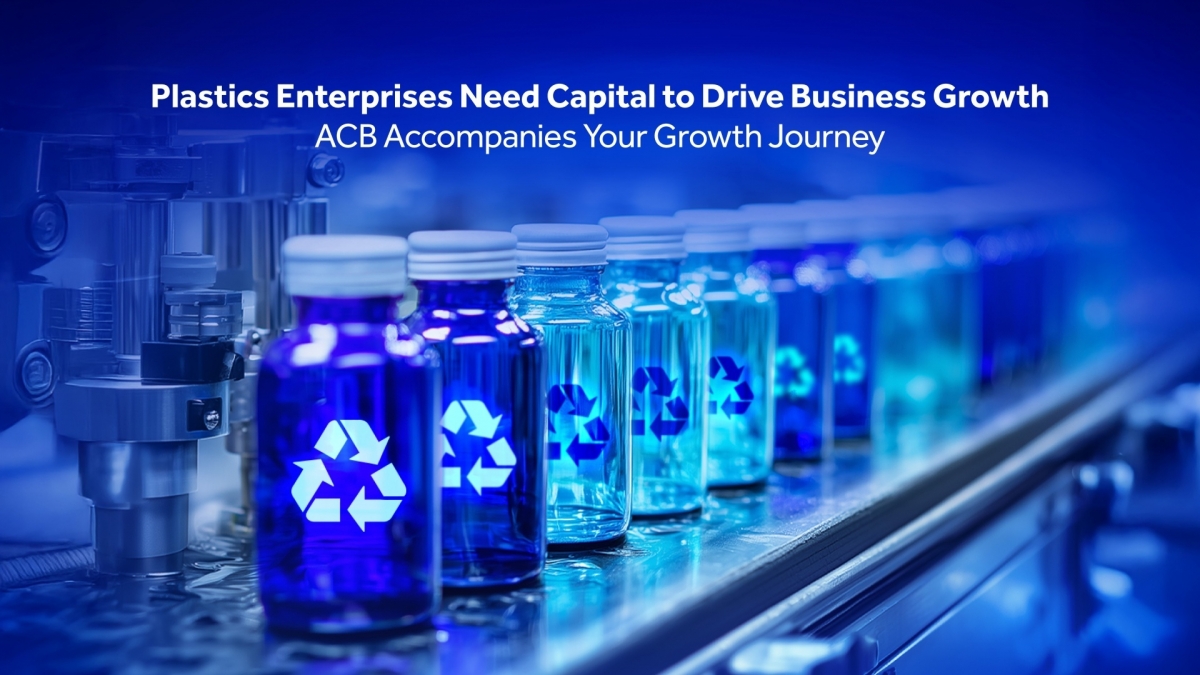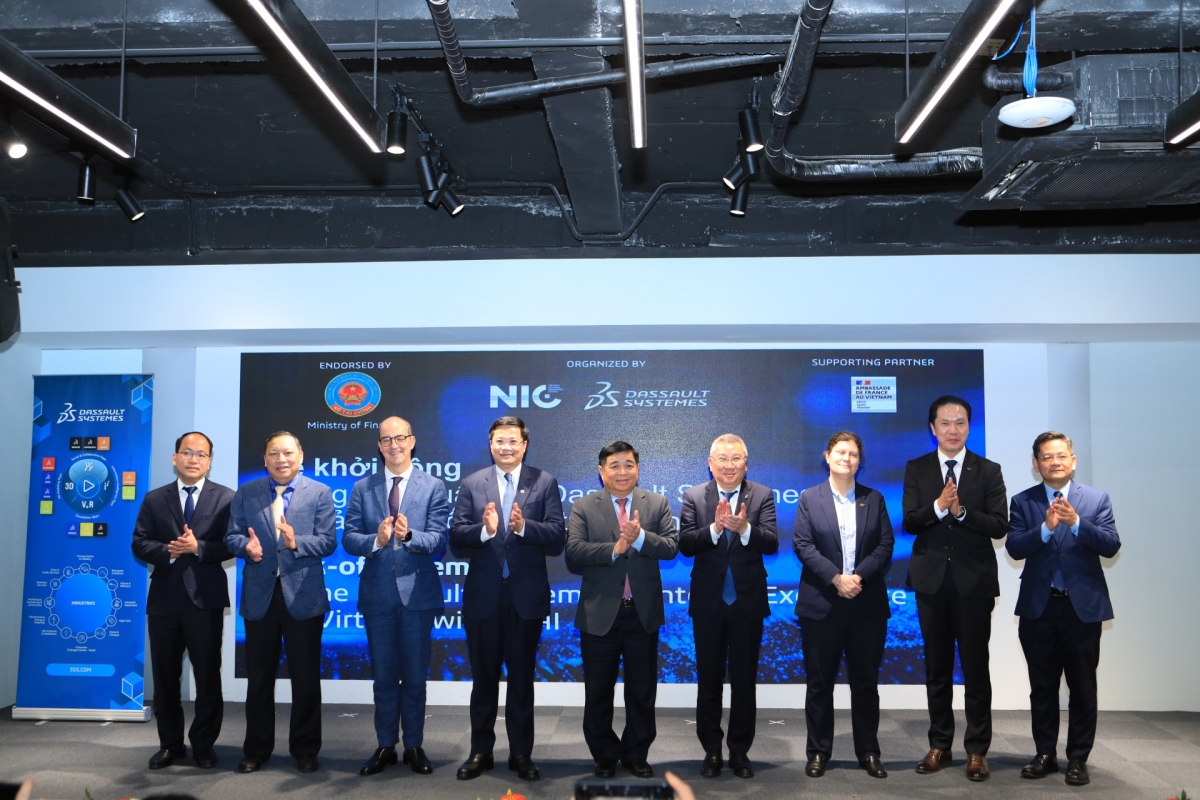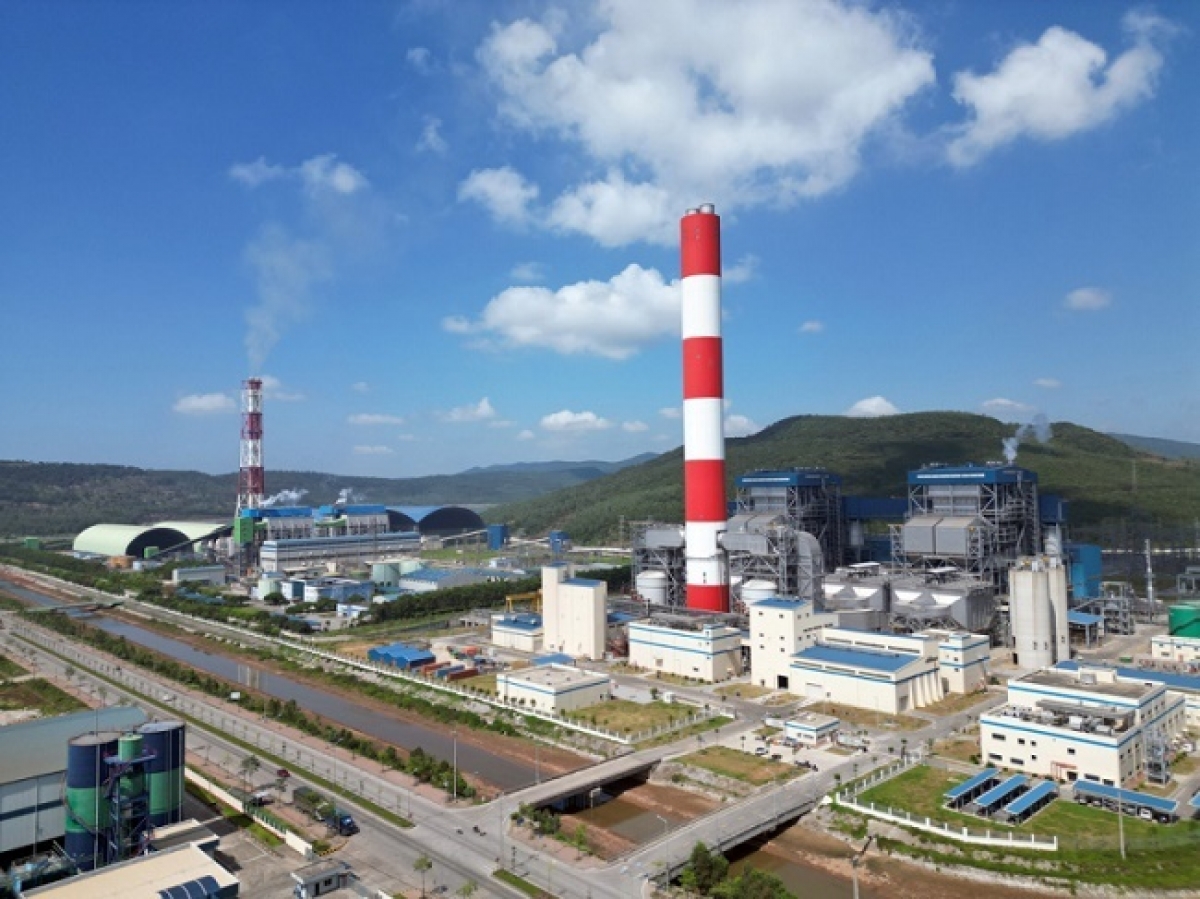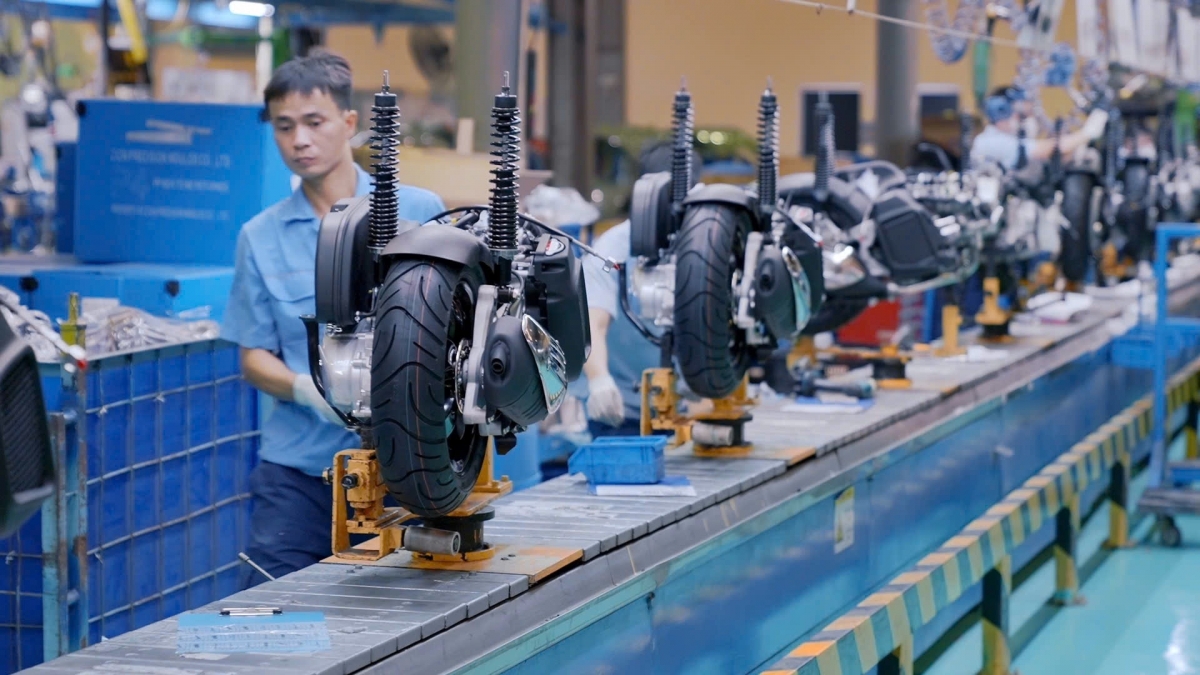INTERNATIONAL INVESTMENT
AND PORTAL
Vietnamese and foreign investors have considered green business as a strategic advantage for competition.
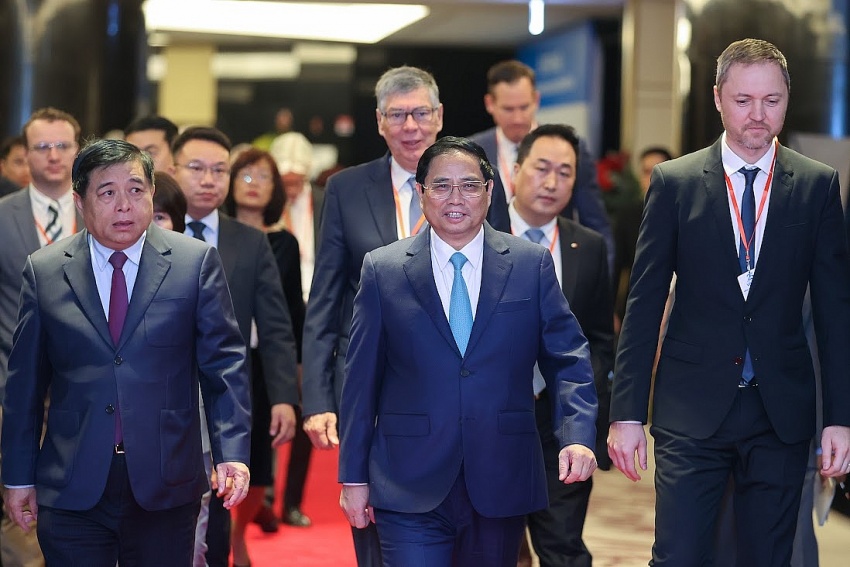 PM Pham Minh Chinh chairing the VBF 2023, highlighting the role of the business community in fostering green growth in Vietnam. Photo: Nhat Bac
PM Pham Minh Chinh chairing the VBF 2023, highlighting the role of the business community in fostering green growth in Vietnam. Photo: Nhat Bac
The high-level session of the Vietnam Business Forum (VBF) took place today on March 19, chaired by Prime Minister Pham Minh Chinh.
With the theme “Business community in partnership with the government in fostering green growth,” the VBF also marked its 25th anniversary.
At the opening of the forum, Minister of Planning and Investment Nguyen Chi Dung highlighted that economic recovery and development in the direction of green and sustainable growth was a top priority for every country. The common goal is to achieve economic prosperity, environmental sustainability and social equity; towards a green and carbon-neutral economy while contributing to limiting global temperature rises.
"For Vietnam, green growth is not only an inevitable choice but also an opportunity to become a pioneer in the region, catching up with the development trend of the world," said the minister.
Vietnam has soon approached the green and sustainable development model by issuing a national green growth strategy for 2021-2030, and a circular economy development project.
"The major tasks are science and technology development, innovation, economic model transformation towards green economy, digital economy, circular economy, and the knowledge economy to participate more deeply in the investment architecture, the global trade order and supply chains," added Dung.
This is considered key to ensuring the successful implementation of the 10-year socioeconomic development strategy, and at the same time, creating opportunities for Vietnam to continue innovation, and accelerate the transformation of its growth model in depth, while focusing on quality, efficiency, and sustainability.
"The business community is identified as a key factor, playing an important role," the minister said. "In fact, many businesses have been going green as a strategy and competitive advantage, such as by using clean energy and environmentally friendly materials, and supporting socially responsible activities to seriously investing in modern, high-tech, environmentally friendly production lines."
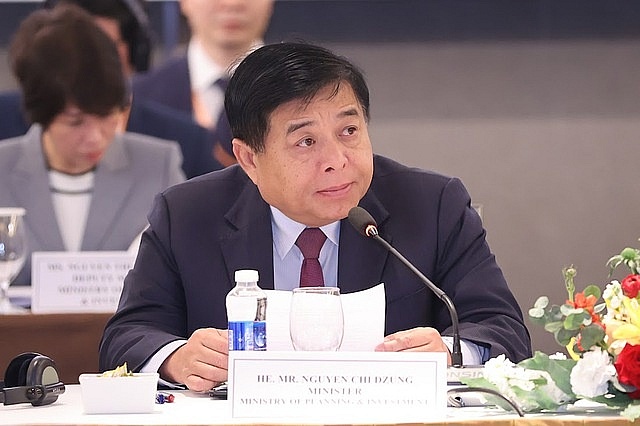 Minister of Planning and Investment Nguyen Chi Dung
Minister of Planning and Investment Nguyen Chi Dung
Thomas Jacobs, country manager of the International Finance Corporation, said private sector finance was needed to improve the legal and regulatory environment to make it faster, cheaper, and simpler to invest in key sectors, such as energy, transport, agriculture, and manufacturing.
He also highlighted the leverage of capital markets, and investment in green and sustainable bonds.
Pham Tan Cong, VBF's co-chair, said that to become a developed country by the middle of this century, Vietnam had to carry out the dual goals of green development with annual GDP growth at 6-7 per cent, and letting green technologies become popular in all economic activities. "This has created numerous opportunities and a new promising land for both the local and foreign business community, and international investors," said Cong.
The VBF provides an opportunity for the business community to advise the government on solutions in green and sustainable economic development; and provides commitments and specific roadmaps to enhance corporate social responsibility in addition to effective business investment.
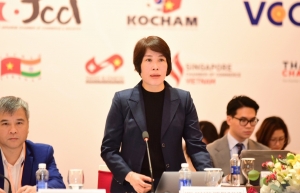 Fostering ties with private sector in green growth
Fostering ties with private sector in green growth
The technical session of the Vietnam Business Forum (VBF) took place on March 17 with a theme of partnership between the private sector and the government to foster green growth.
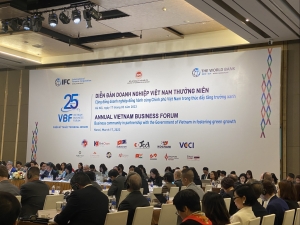 VBF: Agribusiness working group recommends digital transformation
VBF: Agribusiness working group recommends digital transformation
The working group argues that Vietnamese agriculture needs to apply technology and digital transformation to create a turning point in agricultural production, moving from a traditional agrarian economy to one based on scientific technology, digital transformation, and circularity.
 VBF: FIEs seek IRC easement for new locations
VBF: FIEs seek IRC easement for new locations
Foreign-invested enterprises (FIEs) require the authorities to loosen regulations to grant investment registration certificates (IRCs) for their business locations and branches.
By Nguyen Huong




